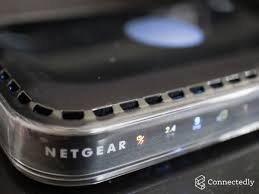Selecting the Right Router
Last updated on March 11th, 2025 at 04:36 pm

I really don’t like answering these questions since they’re vague. They assume that a specific brand makes 100% of their routers better than others. Also, that one type of router can fit any user’s needs. It’s like shopping for a new vehicle minivans are better at one thing while trucks have the advantage elsewhere, so you need the right one for the tasks you’ll be doing.
Due to the large quantity of manufacturers and models we wont touch on any one specifically and there are plenty of sites out there that provide user reviews on specific models anyway, but instead I’ll talk about what to look for and expect from different types of routers and finding the right type for your IT and technology needs.
Parental Controls to protect your kids from the internet and other features on residential routers.

If you’re interestet in routers for your business, you can skip this section and move to the next one. Most off the shelf routers found in your local stores are good options for home, the greatest differences in these are the speed offered, and software installed. While comparing the speed of these is fairly up front and simple the software side can be a bit confusing, some offer features like parental control which allow you to block certain website categories or specific websites, implement schedules so your kids cant access the internet after or during a specified time period, and even a basic software based firewall. Some consumer grade routers even feature a media server and include a USB port where you can share media across connected devices and a guest user access allowing you to setup passwords that you can distribute to your guests and change often without having to reconfigure and reconnect all your personal devices every time you host a party.
These types of routers are not generally good for large deployments where you have a large number of users connected, even when reaching the $300+ price range you are dealing with routers which are built to provide good reliability and speed to a small number of users.
Business/Enterprise-grade routers
Depending on the industry, a business may have regulatory requirements they need to meet like HIPAA for medical, PCI for any business taking credit cards, GLBA, FTC safeguards, and more. IT security should be front of mind for businesses to minimize risk of ransomeware or other types of attacks.
The network portion of your I.T. infrastructure really breaks down into 4 parts, a router, a firewall, a switch, and a wireless access point. Soho and home routers bundle all of these into one simple to use device, think of these as a jack of all trades master of none as the saying goes, and for the most part at a really low price point so its not strange that they don’t always perform all these tasks as expected when used in a large office environment.
With business and enterprise-grade routers you would normally get a device that explicitly works routing packages (your information) back and forth in as efficient a manner as possible and it does only that. Small-Medium Business (SMB) routers generally do the same thing but with the added bonus of a more simplified user interface making them easier to set up and a build-in firewall. You would then be required to add a separate switch from which you connect all of your wired devices and a wireless access point for your mobile or wireless devices to connect to the network. These types of deployments allow for greater flexibility, stronger security, and better scalability.
If your business resides in a large building for example where your wireless signal doesn’t reach throughout the entire floor plan you can easily add multiple wireless access points around the building and even outdoor to provide your staff with the best coverage and if you add more desktops you can add more switches to expand the available number of wired connections.
Running a business is complicated with many moving parts, your network can be just as complicated with routers, firewalls, switches, and wireless access points all needing to be setup correctly, then patched and managed regularly.
This is why we offer our exper IT services, and IT support to any California business in Rancho Cucamonga, Ontario, or Corona and surrounding areas. Call us at 909-256-6202 or fill out this form for a FREE consultation for your business IT suport needs.
Also check out how your business can save on your business phone system, or read about preparing your business for a disaster with a good disaster recovery plan.
Author
Josue Nolasco
I'm a former US Marine infantryman who made a switch to IT to provide cyber security services to SMB's. I'm as much a child of technology as I am of the great outdoors. I like spending time playing, experimenting with, and learning new technologies and whenever possible taking camping trips with friends and family.

